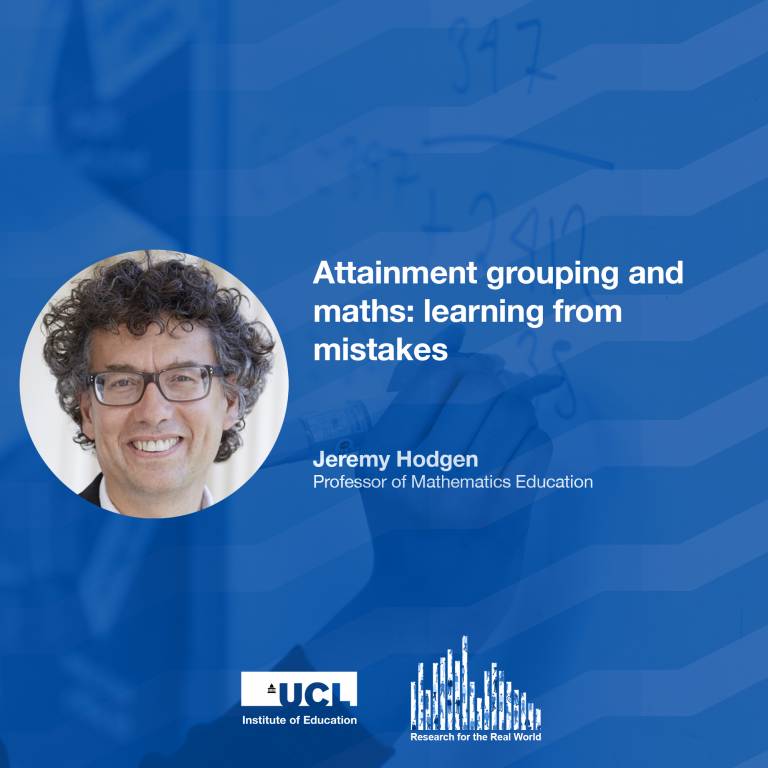Attainment grouping and maths: learning from mistakes | RFTRW: S04E03
24 August 2020
A look at how the evidence can help schools make informed decisions about the ways they group students and work towards equity and improving their life chances.

“We don’t learn mathematics from getting everything right, we learn mathematics from making mistakes… protecting children from those mistakes and errors really doesn’t help their learning.”
After training as a maths teacher at the IOE and teaching in primary and secondary schools, Jeremy set course towards a career in academia, with stints at Nottingham University and King’s College London before returning to us, not only to focus on improving the teaching and learning of mathematics, but also examining how best to group students and support those facing low attainment.
Dr Rob Webster and Jeremy discuss what attainment grouping looks like in England and what best practice looks like, his work with IOE colleagues on investigating the outcomes of mixed attainment grouping in mathematics and what effect the pandemic might have on existing grouping practices, and addressing anticipated learning loss.
Listen to the podcast
You can also listen to the podcast on:
Links
- Professor Jeremy Hodgen's research profile
- Between-class attainment grouping and educational inequality
- Low attainment in mathematics: an investigation of Year 9 students in England
- The Student Grouping Study: Investigating the impact of setting and mixed-attainment grouping
- Department of Curriculum, Pedagogy and Assessment
 Close
Close

